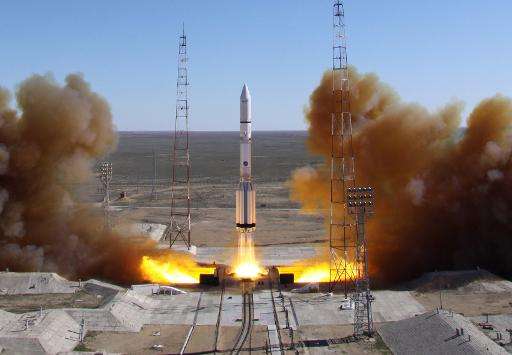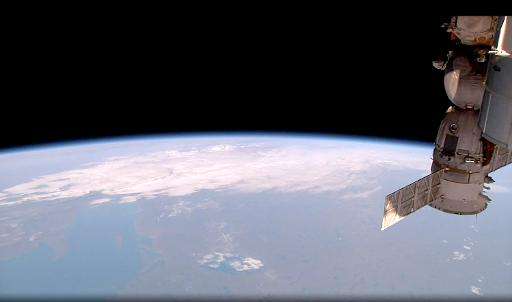Russia probes space failures after rocket carrying satellite falls to Earth

Russia on Sunday began investigating the loss of a commercial satellite and a separate glitch on the International Space Station, sparking fears over the industry's safety.
A commission to investigate the accident with the Proton-M rocket carrying a Mexican telecommunications satellite met Sunday morning, the TASS state news agency reported, citing a space industry source.
Russian Prime Minister Dmitry Medvedev had on Saturday demanded answers from space agency chief Igor Komarov and the names of those responsible, suggesting that heads could roll over the incident.
President Vladimir Putin was also said to be aware of the accident by his spokesman, though he has not commented on it. Neither has Dmitry Rogozin, the usually outspoken deputy prime minister who oversees the space sector.
Last year, Russia sacked the head of Roscosmos space agency over previous failures.
In the accident early Saturday, according to Roscosmos, the engines of the third stage of the rocket taking the satellite into orbit malfunctioned.
The rocket's third and upper stages and the satellite fell back to Earth from a height of 161 kilometres (100 miles), burning up in the atmosphere.
Russian media including state-controlled outlets reported openly on the failures, as relatively low pay in the space industry was blamed.

'Old engines'
Izvestia daily reported that the rocket's engine was built in 2013 in the central Russian city of Voronezh.
"The engines are, you could say, old, although they were of course checked before the start, but we need to figure out how they were made two years ago," a senior source in the space industry told TASS, adding that investigators would be working at the manufacturing site.
"It's obvious that there are failings of quality control in production which could have let through some defects," he said.
Russia is currently reforming its space industry, as it seeks to improve its record and streamline it.
But experts say years of underfunding mean there is a shortage in new generation specialists to replace those recruited in the Soviet era.
"The best of the best do not go to work in the rocket and space sector. There is nothing to attract highly qualified specialists: the pay is low and it's not very prestigious to work there," Yury Karash of the Russian Academy of Cosmonautics said on Russkaya Sluzhba Novostei radio.
"For 20 years the sector wasn't financed, staff weren't being trained," Valery Gartung, an MP and first deputy head of the lower house's industry committee, told RIA Novosti.
The Proton-M failure came exactly a year after the same model of rocket carrying Russia's most advanced communications satellite fell back to Earth minutes after lift-off. The accident was later blamed on a damaged ball bearing.
Proton-M rockets are a workhorse of the space industry, used in 91 launches since 2001, all but 10 of which have been successful.
The accident came just hours after a Progress spacecraft attached to the International Space Station (ISS) failed to switch on its engines on command from mission control to move the station into a higher orbit in a planned manoeuvre.
A second attempt will be made at 3:30 am Monday (0030 GMT), a space industry source told the state news agency RIA Novosti.
© 2015 AFP


















